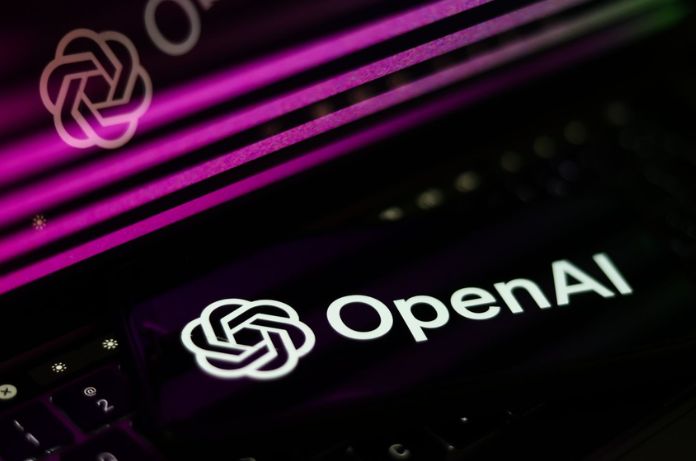Contents
OpenAI Says Its AI Voice Assistant is Now Better to Chat: A New Era for Conversational AI
In the ever-evolving world of artificial intelligence (AI), OpenAI has just taken a significant leap forward in improving its voice assistant capabilities.
The company, which is already renowned for its groundbreaking work with large language models like GPT-4, has now revealed that its AI voice assistant has undergone substantial improvements.
These enhancements promise to make conversations more natural, intuitive, and engaging than ever before.
But what exactly does this mean for users, and how will it change the way we interact with AI?
The Rise of AI Voice Assistants
Voice assistants have become an integral part of our daily lives.
From setting reminders to answering questions and even controlling smart home devices, we rely on voice-based AI to make our routines easier.
Companies like Amazon (with Alexa), Apple (with Siri), and Google (with Google Assistant) have already made significant strides in this space.
However, despite their usefulness, these assistants still face limitations in terms of naturalness, accuracy, and conversational depth.
OpenAI has long been a leader in the development of language models that understand and generate human-like text.
With the release of GPT-3 and the more advanced GPT-4, the company has already shown that its AI can perform complex tasks with remarkable skill.
But while these models excel at generating text, the interaction between humans and AI has traditionally been limited to text-based exchanges.
Voice, however, brings an entirely new dimension to the experience, offering a more personal and engaging way to interact with technology.
What’s New in OpenAI’s AI Voice Assistant?
OpenAI’s latest announcement about its improved voice assistant focuses on making conversations smoother, more dynamic, and more responsive.
The voice assistant is now capable of understanding and responding to a wider range of queries, providing more contextually relevant answers, and handling multi-turn conversations with greater ease.
One of the standout improvements is the ability of the voice assistant to understand and process natural language more effectively.
The new voice model is better equipped to recognize the subtleties of human speech, including different accents, speech patterns, and even emotional tone.
This means users can have a more fluid and less robotic experience when interacting with the assistant.
Additionally, the voice assistant now has an enhanced ability to maintain context over longer interactions.
In the past, many voice assistants struggled with remembering the context of previous statements, often requiring users to repeat themselves.
However, OpenAI’s updated assistant can now follow the flow of a conversation with better coherence, which makes it more adept at handling complex dialogues that span multiple exchanges.
Increased Customization and Personalization
Another exciting development is the increased level of customization and personalization available in OpenAI’s voice assistant.
The system can now adapt its responses based on the user’s preferences, creating a more tailored experience.
Whether it’s adjusting the tone of voice, the type of language used, or even the depth of information provided, the AI can fine-tune its behavior to suit the individual needs of the user.
For instance, users can choose to interact with the assistant in a more casual or formal manner, and the AI will adjust its speech accordingly.
This personalization feature is an essential step toward making AI more human-like and relatable in everyday conversations.

The Impact on Everyday Life
The advancements in OpenAI’s AI voice assistant have far-reaching implications for various industries, from customer service to education, healthcare, and beyond.
With the ability to provide more accurate, context-aware responses, businesses can enhance their customer support systems by deploying AI assistants that understand customer queries and respond intelligently.
In the healthcare sector, AI-driven voice assistants could help patients with their medical needs, provide mental health support, or assist in managing daily tasks.
Moreover, the improved voice assistant has the potential to make AI more accessible to individuals with disabilities.
Challenges and Ethical Considerations
While OpenAI’s improvements to its AI voice assistant are impressive, there are still challenges to address.
One concern is the potential for misuse of the technology. As AI voice assistants become more advanced, there is an increased risk of malicious actors using them for phishing, spreading misinformation, or manipulating conversations.
OpenAI must continue to prioritize security and ethical considerations to ensure its technology is used responsibly.
Additionally, there is the issue of data privacy. Voice assistants collect vast amounts of personal data to improve their performance, and users must be assured that their information is handled securely and transparently.
The Future of AI Conversations
With its improved voice assistant, OpenAI is setting the stage for a new era in AI-human interaction.
As the technology becomes more advanced, the lines between human and machine conversation will continue to blur, offering opportunities for more personalized, efficient, and meaningful exchanges.
Whether it’s helping users with tasks, answering complex questions, or simply providing companionship, AI voice assistants are poised to become a more integral part of our lives.
In conclusion, OpenAI’s announcement of its better-than-ever AI voice assistant represents a monumental step forward in the world of conversational AI.
By improving natural language understanding, context retention, and personalization, OpenAI is not only refining the capabilities of its voice assistant but also shaping the future of how we interact with artificial intelligence.
open ai open ai voice assistant
Last modified: April 23, 2025









